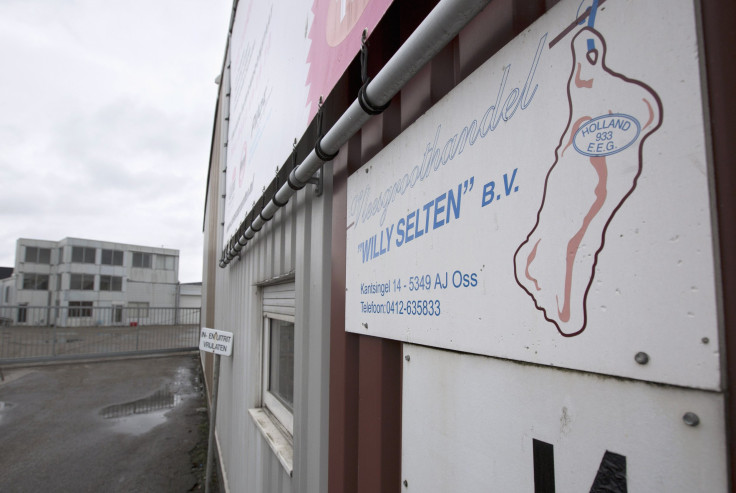Europe Horsemeat Scandal: 5 Things To Know About Willy Selten And Dutch Meat Trader’s Trial

The trial of embattled Dutch meat wholesaler Willy Selten began Tuesday in Den Bosch, Netherlands, with the internatonal trader facing charges of selling horsemeat falsely labeled as beef, according to Agence France-Presse. Selten has denied claims that his wholesale business, Willy Selten BV, intentionally passed off horsemeat as beef, but he did admit that poor storage controls led to some mistakes.
"Beef cuts and horse cuts were stored in the freezer with the same article number," Selten told the Dutch Algemeen Nederlands Persbureau press agency over the weekend, according to AFP. "I forgot to give them different numbers and it's wrong what happened. Of course we should have exercised better control.”
The horsemeat scandal stems from a 2013 investigation in the U.K. that revealed hundreds of tons of meat products labeled as pure beef contained horse DNA. Selten’s business, located in Oss in the southern Netherlands, was subsequently raided by the Netherlands Food and Consumer Product Safety Authority. Authorities discovered dozens of samples of horsemeat labeled as 100 percent beef.
Selten was arrested in May 2013 under suspicion of falsifying food labels. His company declared bankruptcy in April of that year, according to the BBC. Below are five things to know about the Dutch meat trader and the horsemeat scandal that led to his trial.
1. Horsemeat was first discovered in processed beef in January 2013. Irish food inspectors announced that month that they had found horsemeat in frozen beef burgers sold in several U.K. supermarkets, including major retailer Tesco. Tainted meat was later detected in several other European countries, including Austria, France, Germany and Sweden. The findings led to a recall of some 50,000 tons of potentially contaminated meat that had been processed in Selten’s plant.
2. Selten was described as a wealthy and successful “family man.” The 45-year-old father of two lived with an “aristocratic air of wealth,” neighbors in Oss told the Mirror in 2013. His home was listed at £1.5 million ($2.2 million USD).
3. Officials believe Selten used horsemeat instead of beef because it’s cheaper. Horsemeat is cheaper in some countries, and with shrinking profit margins between producers and supermarkets, industry experts have said it’s not unlikely that meat processors “cut corners,” according to the BBC.
4. Selten never denied that his meat plant processed horsemeat. He said he mixed horsemeat with beef when customers requested it, but he has denied any involvement in criminal activity.
5. Selten’s tainted beef patties were worth an estimated £500 million ($743 million). The patties, sold between January 2011 and February 2013, were equivalent to 450 million quarter-pounder burgers, according to the Mirror.
© Copyright IBTimes 2024. All rights reserved.






















